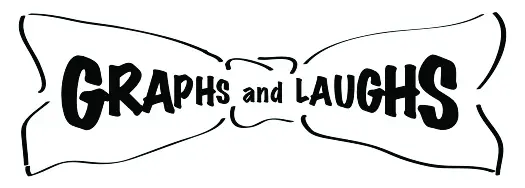The Bowtie Economist's Daily Dose of 70-Word Wisdom
Love is Priceless!
Valentine’s Day spending this year is expected to reach an all-time high of $17.6 billion. Among the 140 million Americans planning to celebrate, average spending will be $126.03, up 8.5% over last year. The average male will spend $168.74 the…
Read MoreMoooove Over
The combination of high agricultural land values, competition for land from corn, soybeans and other crops, severe drought, the high price of feed and surging exports have raised live cattle prices to a record $1.26 per pound. Yet, farmers continue…
Read MoreLove Someone
The Friday File: Economists find that an underdog tennis player is more likely to win if the winner of that match must then play a top ranked opponent. The highly ranked next opponent causes both players to “save” themselves so…
Read MoreCostly Unemployment
As Congress considers–and eventually extends–a temporary payroll tax cut and extended unemployment benefits past 2/12, it should note that if both lapse GDP in ’12 would be reduced by 1%, when GDP growth is only 2%. They might also note…
Read MoreThe Unparticipation Rate
The latest employment report was great, but a little perspective, please. The labor force participation rate is now 63.7% it lowest level since 5/83! (The all-time high was 67.3% in 3/00). Worse, since the recession ended in 6/09, rather than…
Read MoreCreditless-Default Swaps?
As the Greek government defaults on its bonds, holders of Greek credit-default swaps will probably get nothing as the default will be “selective” and will thus not officially trigger a default. This not only hurts banks who thought they were…
Read MoreSubsidized Transit
The DC Transit system’s (bus and subway) annual budget is $1.56 billion. Half the money comes from fares, half from subsidies. About 675,000 roundtrips are taken daily. That works out to an annual subsidy of $1,100 per rider. Capitalized, that…
Read MoreDem Winners
The Friday File: Since ’09 NFL teams have given big bucks to politicians. The Texans gave the most at 293K, the Chargers were next at 172K and the Jets were 3rd at 148K. They also favored Rs 2 to 1…
Read MoreProfit Squeeze
Amazon recently announced earnings. And, while revenues and profit margins always change, ’11 was clearly not a banner year for earning. In Q4 ’11 Amazon had revenue of $17.4 billion but net income of only $177 million, a margin of…
Read MoreRents on the Rise
Good News: Vacancy rates at malls averaged 9.4% in Q4 ’11 down from an 11 year high of 9.6% in Q3 ’11 but way up from the all-time low of 5.5% in ’07. Meanwhile vacancy rates at strip malls held…
Read MoreRecent Posts
- ENERGY EMPLOYMENT 10/21/2024
- CONSTANT KICKING 10/18/2024
- DATA DISSONANCE 10/17/2024
- DEBT DELINQUENCIES 10/16/2024
- ELECTION EXPENSES 10/15/2024
Categories
- 70 Words (3,502)
- Articles (7)
- FEATURED (3)
- MEDIA APPEARANCES (37)
- Uncategorized (5)
Archives
- October 2024
- September 2024
- August 2024
- July 2024
- June 2024
- May 2024
- April 2024
- March 2024
- February 2024
- January 2024
- December 2023
- November 2023
- October 2023
- September 2023
- August 2023
- July 2023
- June 2023
- May 2023
- April 2023
- March 2023
- February 2023
- January 2023
- December 2022
- November 2022
- October 2022
- September 2022
- August 2022
- July 2022
- June 2022
- May 2022
- April 2022
- March 2022
- February 2022
- January 2022
- December 2021
- November 2021
- October 2021
- September 2021
- August 2021
- July 2021
- June 2021
- May 2021
- April 2021
- March 2021
- February 2021
- January 2021
- December 2020
- November 2020
- October 2020
- September 2020
- August 2020
- July 2020
- June 2020
- May 2020
- April 2020
- March 2020
- February 2020
- January 2020
- December 2019
- November 2019
- October 2019
- September 2019
- August 2019
- July 2019
- June 2019
- May 2019
- April 2019
- March 2019
- February 2019
- January 2019
- December 2018
- November 2018
- October 2018
- September 2018
- August 2018
- July 2018
- June 2018
- May 2018
- April 2018
- March 2018
- February 2018
- January 2018
- December 2017
- November 2017
- October 2017
- September 2017
- August 2017
- July 2017
- June 2017
- May 2017
- April 2017
- March 2017
- February 2017
- January 2017
- December 2016
- November 2016
- October 2016
- September 2016
- August 2016
- July 2016
- June 2016
- May 2016
- April 2016
- March 2016
- February 2016
- January 2016
- December 2015
- November 2015
- October 2015
- September 2015
- August 2015
- July 2015
- June 2015
- May 2015
- April 2015
- March 2015
- February 2015
- January 2015
- December 2014
- November 2014
- October 2014
- September 2014
- August 2014
- July 2014
- June 2014
- May 2014
- April 2014
- March 2014
- February 2014
- January 2014
- December 2013
- November 2013
- October 2013
- September 2013
- August 2013
- July 2013
- June 2013
- May 2013
- April 2013
- March 2013
- February 2013
- January 2013
- December 2012
- November 2012
- October 2012
- September 2012
- August 2012
- July 2012
- June 2012
- May 2012
- April 2012
- March 2012
- February 2012
- January 2012
- December 2011
- November 2011
- October 2011
- September 2011
- August 2011
- July 2011
- June 2011
- May 2011
- April 2011
- March 2011
- February 2011
- January 2011
- December 2010
- January 2005
- March 202
